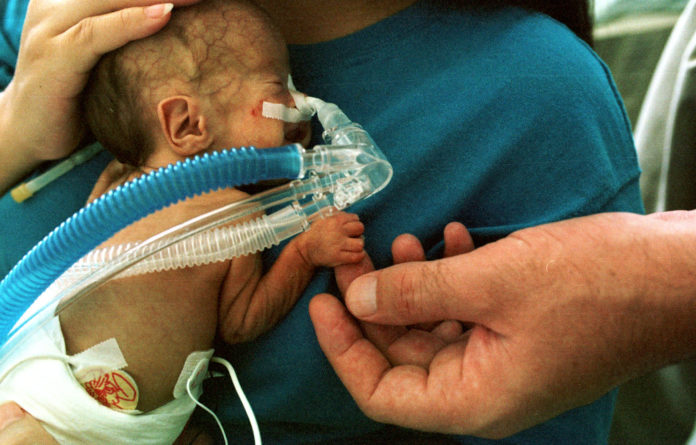Study by University of Warwick shows that pre-term babies, when they got up, are less likely to have sexual relations
- A study of up to 4.4m adult participants has shown that those who were born pre-term (under 37 weeks gestation) are less likely to form romantic relationships, have sexual relations or experience parenthood than those who were born full term
- Research from the University of Warwick suggests it’s partly due to pre-term birth being associated with being more often withdrawn and shy, socially excluded and less likely to take risks in adolescence
- More needs to be done in schools and by parents to encourage social interactions at younger ages, so when they transition to adulthood they are more likely to meet someone and increase their wellbeing
Adults who were born pre-term (under 37 weeks gestation) are less likely to have a romantic relationship, a sexual partner and experience parenthood than those born full term. The meta-analysis by researchers at the University of Warwick with data from up to 4.4 million adult participants showed that those born preterm are 28% less likely to ever be in a romantic relationship.
A meta-analysis conducted by researchers from the Department of Psychology at the University of Warwick has published ‘Association of Preterm Birth/Low Birth Weight with Romantic Partnership, Sexual Intercourse and Parenthood in Adulthood: A Systematic Review and Meta-Analysis’ in JAMA Network Open. They have found that adults who were born pre-term are less likely to form romantic relationships than full-term peers.
In the analysis 4.4 million adult participants those born preterm were 28% less likely to form romantic relationships and 22% less likely to become parents, when compared to those born full term.
Those studies that looked at sexual relations of pre-term children found that they were 2.3 times less likely to ever have a sexual partner when compared to full terms.
“The finding that adults who were born pre-term are less likely to have a partner, to have sex and become parents does not appear to be explained by a higher rate of disability. Rather preterm born children have been previously found to have poorer social interactions”
Those adults who were born very (<32 weeks gestation) or extremely preterm <28 weeks gestation) had even lower chances of experiencing sexual relationships, finding a romantic partner or having children at the same age as those born full term, with the extremely pre-term born adults being 3.2 times less likely to ever having sexual relations.
Close and intimate relationships have been shown to increase happiness and well-being both physically and mentally. However, studies also show that forming those relationships is harder for pre-term born adults, as they are usually timid, socially withdrawn and low in risk-taking and fun seeking.
Despite having fewer close relationships, this meta-analysis also revealed that when preterm born adults had friends or a partner, the quality of these relationships was at least as good in preterms compared to full term born adults.
First author of the paper, Dr Marina Goulart de Mendonça from the Department of Psychology at the University of Warwick comments:
“The finding that adults who were born pre-term are less likely to have a partner, to have sex and become parents does not appear to be explained by a higher rate of disability. Rather preterm born children have been previously found to have poorer social interactions in childhood that make it harder for them to master social transitions such as finding a partner, which in turn is proven to boost your wellbeing.”
The senior author, Professor Dieter Wolke, from the Department of Psychology at the University of Warwick adds: “Those caring for preterm children including parent’s health professionals and teachers should be more aware of the important role of social development and social integration for pre-term children. As preterm children tend to be more timid and shy, supporting them making friends and be integrated in their peer group will help them to find romantic partners, have sexual relationships and to become parents. All of which enhances wellbeing.”


